|
I lead the Catholic Volunteer Network (CVN) – but am not Catholic. My journey to this unique place has not been overnight or accidental. It comes from years of commitment to unity.
CVN is the leading faith-based service organization fostering full-time, faith-based lay mission service. Our membership consists of 155 Christian volunteer programs serving throughout the U.S. and in over 100 countries. In any given year, up to twenty percent of our programs may be identified as Protestant. In addition, volunteers who serve in CVN programs range from cradle-Catholics to spiritual seekers. Recently, the CVN Board of Directors affirmed the importance of witnessing to our identity as Catholic and ecumenical. This approach works because, to a great degree, both CVN programs and volunteers respect each other’s identities and goals. As they learn about each other via extensive application processes, a relationship of understanding and trust begins. The result is clarity about needs and expectations, and in many cases a willingness to engage with “the other” for a significant amount of time. When a year-long volunteer community is ecumenical, learning that enhances and transcends that experience can transpire. CVN thinks that is good—that faith and mission throughout life in a complicated world requires an openness to understand other approaches to faith, community, and service. Openness to different experiences put me on a path of fostering Christian unity. Therefore, when a role with CVN became a possibility, I was drawn to it not despite it being Catholic – but because it is Catholic. I wanted to be part of a network discerning how a commitment to Jesus Christ unites us and enhances witness to his Gospel in the world. But I did not get to that place without a mixture of providence and intention. Years ago, I was the Director of Public Policy for Call to Renewal (CTR), a diverse network of national churches and faith-based organizations united to overcome poverty. CTR’s vision was that Christians from across the theological spectrum working together could inspire other Christians to foster relationships across denominational affiliations, as well as inspire political leaders to work together across the aisle. It was an attempt to break down the divides created by labels such as liberal and conservative, and to honor a range of anti-poverty strategies often considered to be at odds with each other (e.g. strengthening families and supporting government programs). Members of CTR included Protestants, Evangelicals, Catholics, Peace Churches, and more. National leaders from these churches agreed that progress could be made to reduce domestic poverty if they chose not to allow theological and doctrinal differences on other matters to prevent collaboration. Because of this, many Christian leaders met counterparts for the first time and nurtured relationships grounded in openness and a willingness to learn. Many found a new respect for different approaches to faith, as well as different views on how to reduce poverty. That experience and others broadened my theological and political perspectives. Since then, I have sought to build relationships and bridges. I still have convictions and disagree with others, but am less likely to judge quickly or to shut doors. I am more likely to be curious about how God wants me and others to engage despite differences. Sometimes unity means affirming a shared connection to Christ, getting to know another, and seeing where that leads. Sometimes it is a strategic partnership to pursue change. I just try to witness to what I believe – and pray God can act through me and others. I pray that you, too, find special ways of witnessing to the strength of Christian unity. I pray that openness and experience will transform you. The world needs our example. To learn more about Christian unity, please click here. To learn more about faith-based service opportunities with the Catholic Volunteer Network, please click here.
0 Comments
“For even as the body is one and yet has many members, and all the members of the body, though they are many, are one body, so also is Christ.” (1 Corinthians 12:12)
Frequently in the bible, we read that we are all members of one body, making up the church in our world. We must work as one body, sharing as one large group, the church. Although I’ve heard and read this teaching several times, for most of my life I still saw the church as a building. Sadly, this imagery left me with gaps in my understanding which impacted my spiritual life. In Spanish, the word “compartir” means “to share.” One of the biggest impacts that mission and life in Bolivia has had on my spiritual life is the “compartir” culture. Not only do people share with their friends and the people they know well, but they share with everyone. I am currently serving as an overseas lay missioner at the Universidad Academica Campesina-Carmen Pampa (UAC). So far in my time here in Carmen Pampa, Bolivia, I have witnessed everyday acts of sharing. People don’t always have much, but they are always happy to share what they do have. On campus, students have shared their snacks with me. A student invited me to his home to share about Bolivian culture with me. Whenever students attend events and are asked why they chose to come, the resounding answer is simple: “compartir.” Their desire is to share. I learned a great lesson on what it means to share while on a recent trip to a local town with a group of students in Pastoral, the campus ministry group at the UAC. It was a day full of activities to get to know one another: we played games, shared in music, celebrated mass, and ate wonderful food. I had a great time and really got to know some of the students better. I was amazed by the way that everyone shared their time and energy, even when it would have been easier to let someone else take charge. Because I was so amazed by all of the sharing, I was caught off-guard by a conversation that occurred a few days later at our Pastoral group meeting. The group leader asked each person to share a reflection about the trip.The first student to speak shared that she thought the trip had been “mas o menos”, “more or less.” I was a bit confused. As we continued around the circle, many people voiced similar thoughts. I was shocked that the trip I thought was so beautiful had left others feeling disappointed. Then someone started to go deeper: the reason many people had felt a little discouraged was because during most of the trip, people had been in separate groups—one group working on the cooking, one group singing, one group playing soccer. We hadn’t truly been sharing as one. I thought back to what was the most powerful part of the trip to me, and I realized that it had been in mass. The church was small and made of cement. It had plain, cracked windows, and we sat in red plastic chairs. But during mass, we had all come together as one group to share in praise to God, to share in the word of God, and to share in the Eucharist. It had been so powerful because we were all there as one. I want you to close your eyes now and come up with an image of church. I’ll admit that every once in awhile, I’m still going to picture a building. This building may have the most pristine stained glass windows, with beautiful mahogany pews, and a perfectly polished tabernacle. But no matter how beautiful the building may be, this image still leaves gaps. Because no matter how many people are packed in that church, there are still hollow spaces when it is just a building. Like Jesus taught us, we are the church. As the church, it is our mission to act as the body of Christ here on earth. The truth is that we aren’t truly acting as the hands and feet of Christ until we use those limbs to reach out and share. And reaching out isn’t a task we were made to do on our own. Christ’s body was made to work as one unit. When we spread the gift of sharing as one people, we begin to fill voids. The desire of my students to share and to work together as one community and one body has been such a powerful experience. I am still learning what it means to truly “compartir” each and every day. I’m learning how to see myself as a part of a larger, complete body. In embracing this life of sharing, I have found myself more deeply appreciating my time with others, as a part of God’s church, and so becoming closer to Him and to His people. To learn more about service opportunities through Franciscan Mission Service, please click here. Editor's note: This blog was originally published through the Catholic Volunteer Network in May 2018. It has been reposted with permission. Magdalene Van Roekel is a volunteer with Franciscan Mission Service Dear future volunteer,
Each time I revisit the Ascension stories in the Gospels, I find numerous points that relate to mission and service. Throughout my own time on mission in Jamaica, I see similarities between these verses and my challenges and blessings in a daily life of service. I hope to offer encouragement to you, future volunteer, as you research and discern the many opportunities for service available to you. “He rebuked them for their unbelief and hardness of heart…” (Mark 16:14) My strongest prompt to mission came as I reflected on a painting of St. Francis gazing at the cross and being told to rebuild the church. The question written with the painting asked, “Am I willing to do God’s will?” For many years, I have read, heard, and tried to practice in small ways, the example of Jesus doing the “will of my Father,” and loving others as God loves me. Now I felt that God had put the nudge toward mission into my heart. Two years of overseas mission service seemed like a very big step into the unknown but I had the stories of Francis and many others as examples, and I felt that if I said “Yes,” God would enable me to shed my worries and, thus, soften my heart and make more room for his Grace! Future volunteer, God will do the same for you. Mission has taught me to expect the unexpected and to trust in God’s plan. Though I was open to other ministries, there was a pretty high expectation at my future mission site that I would be helping in schools, and that is exactly where I found myself. My first classroom was noisy, chaotic, cramped, and undersupplied, but I found that I had the most difficulty countering the common teaching approaches, which I perceived as overly physical and sometimes belligerent. During the first days and weeks, it was very easy for me to get caught up in the prevalent practice of shouting, derision, and physically putting someone into their chair or the corner. I didn’t like myself doing that. Continually, readings in the Franciscan prayer book kept telling me that Peace IS the path. One time, a student told me that he didn’t like me putting him into his seat. The next day, I got down to his eye level and apologized to him. He listened, we hugged, and I felt that I was on my way toward a better practice. Future volunteer, are you ready to be stretched and molded according to God’s will? “The eleven disciples went to Galilee, to the mountain to which Jesus had ordered them.” (Matthew 28:16) I always notice the number eleven here; it is a particular mention to the fact that someone is missing. Dear future volunteer, are you worried about leaving your loved ones to do service? There are times when I am missing someone familiar from my table. It is different people at different times and my heart misses them. The last phrase—”to which Jesus had ordered them”—strikes me as being particularly relevant to mission and service. What are Jesus’ orders? Feed the hungry, clothe the naked, go and make disciples of all nations. Mission is an opportunity to do just that. My heart believes that God does and will take care of me while on mission, and the Almighty and Universal God is also able to care for my loved ones even when they are on a different continent! “He led them out to Bethany...They did him homage and then returned to Jerusalem with great joy and they were continually in the temple praising God.” (Luke 24:50-53) Dear future volunteer, as you discern your service, there is great help to be found in being “continually in the temple praising God.” I couldn’t have made my decision for mission without some serious prayer and reflection. The question of “Is this really God’s will?” was a focus for my Lenten prayer before I began my time of service. Contemplative silence and guidance from trusted friends helped me to find peace in the answer to that prayer. This ending of Luke’s Gospel account shows the disciples returning to the Temple, and I have reflected on how this seems to be the strength they needed before departing to their ministries that are recounted in Acts. “Jesus came and stood in their midst and said, ‘Peace be with you.’” (John 20:19; 21:22) Ahhh, my prayers were voiced and answered; my heart found peace, and my decision for mission was made. In John’s Gospel, Jesus breathes the Holy Spirit upon the disciples. In the next chapter, I see another of my tendencies: my desire to get a quick summation of God’s plan. Peter wants to know about the future for the Beloved disciple…(nudge, nudge, wink, wink) and he is gently reminded by Jesus, “What concern is it of yours? You follow me.” The disciples encounter the resurrected Jesus in their everyday lives while fishing, walking, eating, and interacting with others. As my mission time unfolds, I also see Jesus in everyday life. I see him in the faith voiced in the locals that I meet and in new forms of singing and praise. I feel discouragement at the discrepancy of incomes and lack of faith just as Jesus felt while gazing at Jerusalem. I marvel to see God’s hand in creation as I walk by household gardens or explore the hills. And, like the disciples, I see Jesus working through me, giving me a stronger dependence on prayer as I realize that I will not be able to fix systemic problems, and a stronger sense of humility as I realize that I am an outsider here, but I truly have been sent by God. Jesus ascended and asked his disciples to go and teach all nations. Mission service makes us a viable part of that eternal and mystical plan. Jesus may have disappeared into the clouds, but we are able to make his presence real today. I really think that He was having a good chuckle as He ascended. He knew how much mission would change us! Dear future volunteer, are you ready to be changed? To learn more about service opportunities through Franciscan Mission Service, please click here. This reflection was originally published on the Catholic Volunteer Network Blog and was posted with permission. Janice Smullen is a recently returned missioner with Franciscan Mission Service. She most recently served in Kingston, Jamaica. In 1964, the Second Vatican Council affirmed in the document Lumen Gentium, “that all the faithful of Christ of whatever rank or status, are called to the fullness of the Christian life and to the perfection of charity.” The Catholic Apostolate Center continues to promote this truth in the 21st century by providing active Catholics the tools and resources to share Christ’s loving message of salvation. In this way, the Center’s mission focuses on reviving faith, rekindling charity, and forming apostles who give witness to this fullness of the Christian life by embracing their baptismal call. Father Frank S. Donio, S.A.C., Director of the Center, explains, “The Catholic Apostolate Center is rooted in the spirituality of St. Vincent Pallotti, who believed that all are called to be apostles and to be co-responsible for the mission of Christ and his Church.” Founded in 2011 as a ministry of the Society of the Catholic Apostolate (Pallottines),Immaculate Conception Province, the Catholic Apostolate Center develops resources that the faithful, particularly those in ministry, can use to aid in their own evangelization efforts. The Center responds to the current needs of the Church through developing, in collaboration with dioceses and other institutions and organizations, formation programs for the New Evangelization. It assists pastoral leaders in deepening collaboration with one another and provides formation opportunities for members and collaborators of the Union of Catholic Apostolate. The Center accomplishes this bold mission through online resource pages, webinars, podcasts, and blogs, as well as through the partnerships with organizations like the United States Conference of Catholic Bishops (USCCB), the Archdiocese of Washington, Catholic Volunteer Network, and St. Joseph’s College of Maine, among others. Furthermore, they host seminars, webinars, and presentations as well as providing consulting services. “While we do produce our own material, and have a large amount of no-cost digital resources, the Center collaborates with many national and international Catholic organizations, dioceses, and the USCCB on a variety of projects to assist active Catholics in living as missionary disciples,” Donio said. In the spirit of St. Vincent Pallotti, the Center equips Catholics to “go out” empowered with the resources and knowledge to propagate the faith for the New Evangelization. St. Vincent Pallotti founded the Union of Catholic Apostolate, an association to revive faith and rekindle charity among Catholics and propagate the faith to all. St. Vincent Pallotti encouraged collaboration among the clergy, religious, and the laity in the 1800s at time in history when many thought the work of the Church should be left to priests and religious. The Catholic Apostolate Center looks to the life of St. Vincent Pallotti for inspiration as it strives to form collaborative relationships with more organizations, further develop its formation resources, and ultimately, empower all the faithful - clergy and lay - to live out their baptismal call. The Catholic Apostolate Center specifically entrusts its work of forming apostles to Mary, “Queen of Apostles” because of her invaluable role in building the early church and encouraging the first apostles. The Center looks to the Blessed Mother as the perfect model of discipleship, apostolic work, and charity as we strive to lead Christ’s followers closer to her Son. Formation leads to action - this is a core belief that influences the work of the Center. Throughout his papacy, Pope Francis has reminded us to be comprised of both action and word, to encourage a spirit of accompaniment and encounter. “Go out,” he says. “Go out and share your testimony, go out and interact with your brothers, go out and share, go out and ask.” By forming the laity to “go out,” the Catholic Apostolate Center hopes to empower the Body of Christ to collaboratively carry out the mission entrusted to the Church by Jesus Christ. This article was originally published at CruxNow.com and can be viewed here. Kate Fowler is the Blog Editor for the Catholic Apostolate Center.
Chris Pierno is the Advancement and Marketing Manager for the Catholic Apostolate Center. 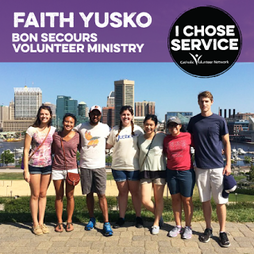 When you are preparing to graduate, you have lots of options. This series from the Catholic Volunteer Network highlights people who chose service, and how the volunteer experience has made an impact on their lives. Name: Faith Yusko Volunteer Program: Bon Secours Volunteer Ministry Location: Baltimore, MD Hometown: West Islip, NY College: The University of Scranton, Class of 2016. International Studies Major How did you first learn about post-graduate service? I learned about post-graduate service through friends and role models of mine who have done post-graduate service. What other options were available to you, and why did you decide on your service program? I had considered jumping directly into the work force, but I definitely felt called to serve others through volunteering and I wanted to deepen my spiritual growth and development! Tell us about your service experience. I serve as a Child Care Aide in the Bon Secours Early Head Start Child Development Classroom. In my role I work as part of a team serving children ranging in age from two months to three years old and their families. This program helps support families and children so that they can develop a love of learning to carry with them throughout their lives. My fellow volunteer community members and I live and serve in West Baltimore, and have been learning from the pillars of our program centered around practicing God's justice, learning through service with others, developing community, growing spiritually, and living simply. In addition to allowing me to share my gifts, my service year has humbled me through the community I am learning from and that I am a part of. What benefits have you gained from this experience that you might not have received otherwise? I am learning different ways to apply Catholic Social Teaching and spiritual well-being practices into my everyday life. It has helped me to continue to grow spiritually after transitioning out of a Catholic undergraduate institution. What advice do you have for someone considering post-graduate service? Take the leap of "Faith" and you won't regret it! There are opportunities to learn and grow through service each day! Question for Reflection: How has an experience of service impacted your personal life or faith? *This post was originally published on the Catholic Volunteer Network Blog and was re-posted with permission. To learn more about post-grad service opportunities, check out Catholic Volunteer Network's RESPONSE directory, listing thousands of opportunities across the United States and abroad. To learn more about Catholic Social Teaching, please click here. “I am the resurrection and the life, says the Lord; whoever believes in me, even if he dies, will never die.”
Today’s Gospel challenged my understanding of what it means to be compassionate. When Jesus learned that a loved one was ill, He responded in a peculiar manner. He didn’t rush to the sick one’s side or hurry to comfort His beloved’s family. Rather, He waited two days. Why did He wait two days? I sure wouldn’t have done that. If He knew all along that He would raise Lazarus, why would He prolong the wounded agony of Mary and Martha? How could Jesus desert those He loved in their moment of need? It seems almost like a test, a cruel and unnecessary test. Yet I suspect Jesus had a different intention. By waiting two extra days He was not punishing or testing Mary and Martha but inviting them to examine their own brokenness. The idea of resting in brokenness, rather than avoiding it, has been a particularly challenging concept for me. I first encountered it in Bryan Stevenson’s book Just Mercy, in which Stevenson says “We can embrace our humanness, which means embracing our broken natures and the compassion that remains our best hope for healing. Or we can deny our brokenness, forswear compassion, and, as a result, deny our own humanity.” It seems that Jesus chose the former. When He finally arrived in Bethany and witnessed the woundedness of those He loved, He “became perturbed and deeply troubled.” Then, “Jesus wept.” Knowing that Jesus wept helps me reclaim my own brokenness and affirms that truly embodying compassion requires entering into the chaos of woundedness, both my own and that of the “other” person. Prayer: God of grace, help me rest in my woundedness. When I feel most alone and deserted, remind me of Jesus’ constant refrain “Do not be afraid.” Help me remember that Jesus Himself, the almighty Son of God, wept for the pain of His community. Let me never forget that one of Jesus’ greatest miracles of raising Lazarus from the dead was precipitated by His solidarity in suffering with those He loved dearly. Amen. Focus on: Social Justice How have you been wounded by the, as Dr. Martin Luther King Jr. puts it, “sickness of racism, excessive materialism, and militarism?” How can you – and your surrounding communities – enter into this brokenness and encounter healing compassion? Service Inspiration: My mother, Sue, understands part of my volunteer experience, but struggles with other components. However, I recently babysat for a colleague’s children, a two-and-a-half year old and a six-month old. When I left, I was exhausted. I realized later that I watched two boys the same age difference as my brother and I, but only for a few hours. My mom did it for years, and then became my teacher and homeschooled us. She served as an enormous role model, never asking for thanks or recognition, silently taking on her children’s struggles. She is an inspiration and reminder of Jesus here on Earth. *This Lenten reflection was originally published on the Catholic Volunteer Network Blog and was posted with permission. Greg Hamilton attended Saint Michael’s College in the grace-filled Green Mountain State of Vermont and is currently serving as a Jesuit Volunteer in Washington D.C. at the Campaign for the Fair Sentencing of Youth. Most days, Greg finds a way to involve his favorite poet, Mary Oliver, in his routine. 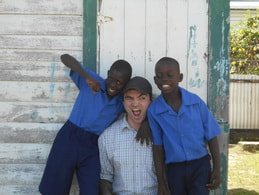 There is nothing easy about living in Guyana. Navigating the city streets of Georgetown is difficult, household chores need to be done more mindfully than in the United States, and even simple tasks like taking a shower or prepping to go to bed require more effort than I’m used to. Everything is just a little bit more difficult. Thankfully, as I’ve been adjusting to this new culture, country, and way of life over the past month and a half, I have had two saving graces that have kept everything in perspective. The first is my community of MVC volunteers who are experiencing the ups and downs of living in South America with me on a daily basis. The second is my job. No matter how difficult a single day may be, I’m always grateful to head to work. It serves as a constant reminder of why I’m in Guyana in the first place. I’ve been working for just over six weeks now at an orphanage for boys about fifteen minutes outside of the city of Georgetown in a small village called Plaisance. There are over fifty boys that live at the orphanage and about half of them attend the K-6 school on the grounds of the orphanage. Once the boys reach grade 7, they go to school at a secondary school in the next town over. I’ve been teaching the fifth grade class since my arrival and it has been…quite an experience. There are just a handful of boys in each grade. So, I spend my mornings and afternoons with three nine year olds and a thirteen year old who is repeating 5th grade for the second (or third?) time. They’re great kids, always keeping me on my toes. As the days have worn on, I’ve realized just how important the role I play in their lives is. Not to sound like a conceited fool, but the information that a fifth grade teacher dishes out to his/her students is essential stuff for life. For example, in the first few days of school, I’ve already taught the boys how to use quotations marks in Grammar class and how to do long division in Math class. When it comes to teaching vital lessons like these, I take the job very seriously. It’s fun to be able to teach something fundamental to little human beings, and it’s exhilarating to see them begin to understand it. On the flip side though, it’s slightly terrifying when you correct their homework and realize that they are still missing some of the basics. Alas, all part of the ups and downs of teaching. I’m learning really fast, I love being able to learn on the job. My classroom is a simple room with no walls between my room and the other classrooms in the school. All that separates each “classroom” from the next one over is a blackboard. I would have thought that it would take quite some time to get used to this way of teaching and learning, but I quickly grew used to staying focused on my classroom and the kids have been learning like this their whole lives, so they don’t even notice that there are five other lessons going on simultaneously with their lesson. The only time I have any issue with my four boys losing their focus is when the first graders are singing along with a cassette tape to an “Itsy Bitsy Spider” song that they all learned when they were in first grade. No matter how many times I try to coral them back into our lesson, they always feel the need to sing along with their six-year-old friends in the next classroom over. I have no materials to speak of to teach my students with, other than a few pieces of chalk and some outdated, tattered textbooks. Somehow though, it’s enough. Yes, it would be greatly beneficial to have a copier, pencils, crayons, notebooks or loose-leaf paper, but we make do with what we have. It takes a lot more creativity to teach a group of boys with nothing but chalk and my imagination than it would if I had a “Smart Board” and access to the Internet. I do find it humorous; however, that at the end of each day all four boys and I are always covered in chalk –our clothes, our faces, there’s no escaping it! At the end of each day I’m tired and I welcome the fact that Guyana’s close proximity to the equator means that the sun sets right around six o'clock each night. I think of it as the earth giving me permission to wind down and head to bed early. No matter the day, whether it’s Monday or Friday, I’m always exhausted by the time I’m arriving home. Thankfully, the tired feelings I experience are all just remnants of a good day’s work, in which I did a little teaching and, ironically, ended up learning so much more about life, love, and how the world works in the process. To learn more about Mercy Volunteer Corps, click here! Matthew Guiffre is a Mercy Volunteer Corps serving in Guyana South America. This post was originally written and posted on the Catholic Volunteer Network Blog. For more Catholic Volunteer Blog Posts please visit the CVN Blog Page. The Catholic Apostolate Center is proud to partner with the Catholic Volunteer Network by developing faith formation resources for volunteers and alumni, assisting in its efforts to provide and advocate for faith-based volunteerism and collaborate in many additional ways. Those of us who are old enough to remember 9/11 typically have a vivid memory of what we were doing when the first two planes flew into the Manhattan World Trade Center. I remember that it was a cloudy, Texas heat-filled day. I was completing cross country practice in the back roads surrounding my high school in New Braunfels, Texas. The run felt a bit rushed since we only had two school periods for practice. Getting the news of the attacks also felt rushed as I was trying to get myself ready for class. It was eerie and unbelievable. Still, September 11, 2001 holds in my memory for the gravity of the attacks, the amount of lives lost and, more personally, because of where it led me in my own life. Before 9/11, I was simply a high school sophomore “figuring out who I was” and where I wanted to go to college. But afterwards, I started to think more about public service. Military service seemed like the best way, as I was familiar with it due to my dad's own military service. After some encouragement from family friends, I applied and was accepted to the US Air Force Academy. Upon graduation in 2008, I was commissioned a second lieutenant and began service as a communications officer. I served on active duty for six years, one tour in Iraq, and I continue to serve as a reservist. I am grateful for the opportunity I had to serve, for the people I encountered and how my military service has shaped me into the person I am today. I share my military service to paint another picture alongside the backdrop of so much grievance and loss caused by the 9/11 attacks. My story is not a common story among the American population. To this day, approximately only 7% of Americans have served in the military. And of that population, only 18% make up the post-9/11 veterans. But what is a common story is that among the men and women who chose military service, many feel their lifelong call is to serve others. While most Americans have been reading about it, those with military background have practiced a life of service that is indelible. The military trains and shapes you to protect the lives of your fellow man. As you go up in the ranks of the military, your greater responsibility is to be a leader who ensures their subordinates have the tools and training to get the mission done. This familiarity with and desire for a life of service among those in the military offers hope in the midst of such tragic events like the attacks on 9/11. As a result, veterans have been inspired to serve, even beyond military service. Those who come home from active duty are still seeking a mission to serve, and the Church is a good place to do just that. For some, religious life or the priesthood do not seem that far off. Others take leadership positions in their parish councils as lay members or advocate for the veterans to be welcomed into their local Catholic community. As you consider pastoral ways to remember 9/11, I encourage you to seek out veterans or those returning from military service in your community. These veterans can be a part of the hope in our world and help seek the good out of such loss. I invite you to enlist their support to organize a memorial prayer service in your local church. Beyond military veterans, we also see the other local emergency services who have also been greatly affected by 9/11. Don’t forget to include them in your outreach as well. Here are two practical suggestions on what to include in such a memorial prayer service:
To learn more about serving others through faith-based service opportunities, please visit the website of our affiliate, the Catholic Volunteer Network, by clicking here.
9/25/2014 Discernment Story: How one volunteer came to hear her life calling through serviceRead NowI believe that my two years of service had a 100% direct impact on my discernment process and decision to enter the Daughters of Mary Help of Christians, more commonly known as the Salesian Sisters of St. John Bosco or just the Salesian Sisters. In fact, I would go so far as to say that God sent me to volunteer at this particular High School to reveal my vocation.
I wanted to do a year of volunteer service right out of high school, but did not have the opportunity to do so. I learned that I found great joy in serving others through my social outreach group in high school and had a strong desire to give more time, energy, and direct focus to volunteering. Come April of my senior year in college, I found myself without a plan for the following year and the idea of doing a year of service re-entered my mind. I visited theCatholic Volunteer Network website and found the online RESPONSE directory,which helped me to narrow down my search to the type of program I was interested in with the type of support that I needed. This is where I learned about the Cristo Rey Network of schools and truly the next chapter of my life began. The Cristo Rey Network is a high school model that offers low income families the opportunity to send their students to Catholic college prep high schools. How is this possible when most Catholic high schools are quite expensive, you might ask. The school partners with local corporate businesses, organizations, universities, hospitals, law firms etc where the students will work five days out of the month to offset their tuition cost. (Click here to learn more and see me in my classroom at minute 4:37.) It took a leap of faith to go to Don Bosco Cristo Rey High School (DBCR) in Washington, D.C. because I would be joining the Salesian Domestic Volunteers (now called Salesian Home Missioners) in their first year as a volunteer program and I would also be the only volunteer placed at DBCR. I was going to be a pioneer both in my volunteer program and placement in the school. DBCR was also only in its fourth year of existence and still responding to the challenges of being in the “start up” period. It would be two years of learning and growing for all of us. During my first year of service at Don Bosco Cristo Rey High School I worked in the Youth Ministry and Faith Formation Department while also teaching two sections of junior theology. In my second year I taught a full course load, five sections, split between freshmen and junior theology as well as assisting the youth ministry team. Within those classrooms and the small youth ministry office God called me to be a Salesian Sister. I learned a lot from working side by side with Fr. Abraham Feliciano, SDB (Salesians of Don Bosco). In him, I witnessed the everyday charism of the Salesians and joyful service to the young who are most in need. Fr. Abe loved those students with his whole heart and they knew it. They knew that they could rely on him to crack a joke and brighten their day or that they could come to him with serious problems and he would lead them to Jesus. I learned that the heart of the Salesian charism is a daily encounter with Christ in and through our students and hopefully reciprocated as we open ourselves to be an image of Christ for them. I spent countless afternoons in that youth ministry office, surrounded by young people, laughing so hard I thought I would burst! I also learned how to be with them in and through the struggles they encountered in their daily lives. (Click here to see the class of 2014 reading excepts from MLK Jr.’s “Letter from Birmingham Jail”. These are some of the many students who have overcome great challenges in their live and that I had the privilege to see Christ in everyday. ) While working with these students, I lived in community with volunteers from several different programs. We were a mixed bag of Franciscans, Salesians (that’s me!), Columbans, and volunteers from the Catholic Volunteer Network. Over the course of my two years there we ranged from a community as small as four to as large as nine. The Franciscan style of living in community is simplicity. On an economic level, we made do with all second hand furniture and shopped frugally for our needs. We usually did not buy Ziploc bags, for instance, because we could reuse Tupperware containers instead. As a part of my volunteer program, I did not have a car but I received a stipend each month for food and transportation. On the community level, simplicity meant that we relied on each other. Sometimes that took the form of practical matters, such as grocery shopping or mopping up a flood in the basement. Other times it took a more personal form as we relied on one another for support and friendship. Now that I am living in community with the Salesian Sisters, I look back on my time in community as a formative period. In learning how to live with different people of various personalities, I learned how to recognize the gifts that all members can bring to community and I was able to learn more about myself as well. As my two years of volunteering came to a close, I decided to stay and accepted a full time paid teaching position at DBCR. But I had an inclination, even then, that God was calling me to something more, something deeper. God had gifted me with two wonderful and difficult years at the service of a school and students truly in need. But His ultimate goal was not for me to stay at one school and with one group of students, He wanted to expand my horizons of service and the dimensions of my heart. I had the opportunity, while Fr. Abe was at DBCR, to attend daily Mass in our school chapel. This daily encounter with Christ in the Eucharist helped me to see Christ every day in the young people and opened my heart for the possibility of deeper relationship with Him. When the Salesian Sisters came for our vocations assembly I heard God’s voice speaking directly to me saying, “This is it!” I must be honest, my first reaction was irritation. “Oh very funny God! Here I am sitting through the same vocation talk presented to all five of my Theology classes. Aren’t you supposed to be speaking to the students right now?! Leave me alone!” But because our God is good and patient, He didn’t leave me alone. After three years in Washington, D.C., He called me to move to New Jersey where the formation house of the Salesian Sisters is located. It took some convincing on God’s part to show me that it was not just DBCR where He wanted me to serve, but anywhere the Salesians are and with all young people tho whom He might send to me. The Salesian Sisters dedicate their whole selves to God in the service of young people through education, parish catechism, youth centers, and anywhere young people may be found. St. John Bosco and St. Mary Mazzarello (our founders) shared the joy of Christ with every young person they met providing for them a home to feel welcome, a school to prepare them for life, a Church to evangelize, and a playground for them to make friends and have fun! For me, what started as just a year of service post college opened the doors of my heart for Christ to call me to my life’s vocation. I am now half way through my first year of formation and if I had to identify one overriding emotion, it would be deep a sense of peace. For more information on vocations, be sure to check out the Catholic Apostolate Center's Vocational Discernment Resources Kelly Schuster is a former Salesian Home Missioner and is currently an Aspirant with the Salesian Sisters This post was originally written and posted on the Catholic Volunteer Network Blog. For more Catholic Volunteer Blog Posts please visit the CVN Blog Page. The Catholic Apostolate Center is proud to partner with the Catholic Volunteer Network by developing faith formation resources for volunteers and alumni, assisting in its efforts to provide and advocate for faith-based volunteerism and collaborate in many additional ways. For our community service we visited the Waterman Nursing Center here in San Bernardino, Ca. My fellow students from the University of Redlands put on various activities for the elders. We made valentine cards, some played card games, and we also had nail painting for the old ladies. It was a lot of fun!
This was actually our third time visiting the Waterman Nursing Center as a group. I was really excited to see familiar faces from previous occasions. What is so significant about our service at the Center is that we are able to experience Jesus’ presence just by being there and sharing time. It’s quite a humbling experience. Sometimes it may be hard to communicate with some of the residents because of their health condition, but that doesn’t mean that there is no connection. On the contrary, I feel like there is a greater connection that goes beyond the superficial level. I don't really know how to explain this. I say this because there is this particular lady who I always see. She loves to get her nails done and her favorite color is red. Every time I see her I get the chance to spend some time with her and do her nails. On this day, since we had the opportunity to make valentine cards I decided to make her a card, and as I was making her the card she was telling me how she recognized me when I said my name and that she was really happy to see me again. This was significant to me because it reassures that there is a special connection even though we may not say much. For example, sometime it is hard for me to understand what she is saying so we may just exchange a few words and smiles and not really have much conversation but, I can still feel joy and love just by being there with her. When she told me that my presence was appreciated, it was reassuring to know that she felt the same way. It’s truly a blessing to visit these people. I think it is amazing how we can all experience God's presence (love) through service. They may not all be that same experiences but, you can definitely see God through them. Service to me means having an open heart to serve others in whatever their needs are, and it can be as simple as sharing time with the elders. Jessica is a sophomore studying at the University of Redlands. She also plays a leadership role in her campus ministry, serving as a Campus Recruitment Associate through CVN's partnership with Catholic Extension. This post was originally written and posted on the Catholic Volunteer Network Blog. For more Catholic Volunteer Blog Posts please visit the CVN Blog Page. The Catholic Apostolate Center is proud to partner with the Catholic Volunteer Network by developing faith formation resources for volunteers and alumni, assisting in its efforts to provide and advocate for faith-based volunteerism and collaborate in many additional ways. I try to make it to weekday mass before work. One day recently, father spoke of self-possession. “We must fully possess ourselves to fully give ourselves.” For me, these words could not ring more true.
My service year thus far has been one of immense growth, complete with intense growing pains (I went from 5’4” to nearly 5’9” in middle school and I remember complaining to my father how much my knees and legs were hurting). Until mass that day, I didn’t connect that I’ve been learning, trial-by-fire, the important relationship between self-possession and self-gift. With my job as case manager at a residential high school for emotionally disturbed teenage boys, I can’t afford to live a life of extremes. I know what it’s like to go to work with little sleep (awful), I know what it’s like to go to work unprepared (stressful) and I know what it’s like to go to work in a bad mood (disastrous). This year is a crash-course in how to be an adult – I cannot get away with the disorganization that characterized my life for three-and-a-half of my four years of college. Then, I lived only for myself. Now, I have a duty to my community and to my students. I live for nineteen wild teenage boys, and whether or not they see or appreciate it, I need to be at my best every minute that I am at work. Self-possession, or self-discipline, is an important skill I am trying to acquire for the sake of myself and those I serve. Social service is a field that demands one to continually give of oneself. You give your time and attention to students with issues like, “I have a toothache and my mom’s insurance card isn’t working, can you make me an appointment?” to “I feel abandoned by my family and don’t want to be in this place” to irate calls from parents, to surprise visits from state agencies.. One is constantly giving time and attention to all types of people and situations. Self-discipline may have too much of an ascetic, medieval tone to it, but it is so very important for good work. I need to sleep. I need to smile and listen to others even when I don’t feel like smiling or listening. I need to do my paperwork in a timely manner. I need to read my work email instead of browsing the internet. I need to make sure I have time with friends so that I can be in a place of peace and happiness for my work. I need to model how to live a good life, so that when I give my students a hard time for playing 18 hours of video games over the weekend or for not communicating respectfully with their parents, I am not picking out their splinter in their eyes while the plank is in my own. We learn more from what people do than what they say. Our world is inundated with words, most of them pretty useless. Actions are more powerful, and someone who does what he or she preaches is the kind of person I might stop and listen to. Our faith has the most beautiful image of love: Jesus on the cross. That example of pure love, of most unselfish self-gift, moves me to action more profoundly than any words of a thoughtful hallmark card, any viewing of the Notebook, any poem of Elizabeth Barrett Browning (and I enjoy EBB!). Love in our faith is a dying to oneself for the sake of others and God. If I fully possess myself, I have grown in my ability to die constantly to myself. And if I have created that habit within, then I can more freely love and give to those around me. Jen Coe is a volunteer with the Catholic Volunteer Network, and a 2012 graduate of The University of Notre Dame. This post was originally written and posted on the Catholic Volunteer Network Blog. For more Catholic Volunteer Blog Posts please visit the CVN Blog Page. The Catholic Apostolate Center is proud to partner with the Catholic Volunteer Network by developing faith formation resources for volunteers and alumni, assisting in its efforts to provide and advocate for faith-based volunteerism and collaborate in many additional ways. While we cannot have the Church without having community, I have realized that a lot of my spirituality also depends on my own initiative and personal relationship with God. I am learning to see God everywhere in the world, but particularly in frequent mass, exercise, music, the Rosary, art and silence. As persons of faith in our society, it is important to have strong foundations that enable us spread the love of our work to those most in need.
Here are a few elements I find crucial: 1. Prayer - Prayer is the foundation of faith and spirituality. The beauty of prayer? There’s no right or wrong way to pray. While some of us turn to more traditional forms of prayer such as praying the Rosary or praying with Scripture, exercise, meditation, writing or service work can also be forms of prayer. Every morning, I like to say a prayer offering up everything I will do, think and feel up to God. This even includes my weaknesses and anxieties. The key is to set aside regular time for prayer in whatever way you most connect with. What kind of time do you have? Do you have 20 minutes? 10? Five? One? Whatever time you can, set that aside for regular prayer. See what happens. Spiritual Tip: Have a smart phone? Check out the “pray as you go” section of the free Laudate app. It’s an Ignatian podcast of daily scripture, song and reflection that is only ten to fifteen minutes long and is great to listen to on your commute to work! 2. Silence - This one is often overlooked….or seemingly impossible. But silence enables us to truly think and to let those thoughts mature. Just like prayer, think about how much time you can set aside for some moments of silence, even if that just means closing your eyes and taking a few deep breaths during your work day. Spiritual Tip: “We need to find God, and he cannot be found in noise and restlessness. God is the friend of silence. See how nature - trees, flowers, grass- grows in silence; see the stars, the moon and the sun, how they move in silence... We need silence to be able to touch souls.” -Mother Teresa 3. Spiritual direction - I like to think of a spiritual director as a type of faith-based therapist. I’ve learned that I can think and pray and meditate all I want, but it’s helpful to have an outside perspective that enables me to see outside of myself. This can be a priest, religious, trained spiritual director or leader in your community. It’s helpful to have a spiritual director you trust that isn’t necessarily a friend or family member. That way, this person can bring in a fresh, outside perspective to guide and direct you along your spiritual journey. Spiritual Tip: Browse spiritual directors they way you would browse for shoes for an important occasion. Spiritual directors, like shoes, are not “one size fits all,” so be sure to have some preliminary discussions with several people before settling on one. 4. Retreats - It’s typically recommended that we do a retreat per year. Retreats are exactly what the name implies: a retreat from the world, from our lives or from our typical schedules. They are important in allowing us to focus our thoughts and energy on the divine in a way that our regular schedule hardly permits. The beauty of retreats is that they can vary greatly. There are silent retreats, community retreats, family retreats, staff retreats, yoga retreats, weekend retreats, day retreats—you name it. Think about what one may be right for you at a certain time. Spiritual Tip: This once a year thing sounding impossible with your schedule? Try a daily three minute retreat from Loyola Press by clicking here. 5. Eat, sleep and exercise - Seriously. God gave us minds and bodies as well as spirits. So make sure to take care of all of you! We can’t be of much help to others if we ourselves are not being taken care of. Shut off your laptop or TV at least 30 minutes before getting to bed; studies show that the light from these screens can keep you up or leave you restless. Read a book instead. Take a ten or fifteen minute walk during lunch. Add some more green to your life. Recycle. Do whatever you need to feel rested and taken care of. Think of the phrase, “Behold God beholding you…and smiling.” Rest with that. We are the Church. And we are called to support, love and stand with others. Our work as people of faith enables us to do this in unique and beautiful ways, but we need to make sure we are healthy and strong in our own spiritual lives in order to truly be living, breathing instruments of God. How will you commit to living intentionally today? Kate Flannery is a former Catholic Volunteer Network Communications intern. This post was originally written and posted on the Catholic Volunteer Network Blog. For more Catholic Volunteer Blog Posts please visit the CVN Blog. The Catholic Apostolate Center is proud to partner with the Catholic Volunteer Network by developing faith formation resources for volunteers and alumni, assisting in its efforts to provide and advocate for faith-based volunteerism and collaborate in many additional ways. “Where’s Matt when we need him?” I thought. Our roommate had been gone less than 48 hours and already the kitchen of our intentional community was suffering neglect. The counters were speckled. The dishes were grimy; the dishwasher full. I assumed this would happen when our neatest roommate moved out (his weekly chore was, after all, kitchen duty). I didn’t think about beginning to fill some of the void. Yet there I was, stacking plates, running the dishwasher, scrubbing the pans, cleaning the counter.
I did the dishes today. That wouldn’t exactly make me a hero. But here’s the thing: I didn’t want to do the dishes today. Every once in a while, I get in these pious moods where I take joy in doing small things for others. I blush to admit it, but this was not one of them. All I wanted to do when I got home after work was get cozy and watch my favorite Jane Austen novel turned movie. But there they were, two skillets, one pan, a crockpot, plates and utensils, mocking my weariness in all their oily glory. It’s a good thing I didn’t see them all at once, otherwise I probably wouldn’t have had the courage to take the sponge in my hand and turn the hot water on. The dishes and pans came at me from all sides: next to the stove, in the kitchen corner, by a towel—littering our kitchen counter, collecting grime from the meat grease, dotted with crumbs.They smelled too. This was no prim affair. Soapy, clear water instantly turned black and brown. The blue sponge was quickly camouflaged. Unidentifiable particles swam sloppily, drowning one moment and resurrecting the next. Sometimes I hummed a holiday tune. Sometimes I sighed exasperatedly. The internal struggle continued. Did these dishes know what kind of day I had? No, they didn’t. All they cared about was getting clean, being put away, getting reused.And thank God for that. The dishes made me step outside of myself and serve others. I wasn’t in a soup kitchen. I wasn’t in a nursing facility or hospital. I was in my own home, serving the people I see almost every day—the people who often get forgotten in my quest to serve, the people who may not even remember to thank me. Brother Lawrence, however, reminds us in The Practice of the Presence of God, "We ought not to grow tired of doing little things for the love of God, who regards not the greatness of the work, but the love with which it is performed." So maybe my act of service wasn’t particularly glorified or heroic on a worldly scale. But doing it with love was. Because love involves serving others, even if it's not exactly first on our to-do list. By doing the dishes, I was serving a hodge-podge group of people that I’ve come to love, even though I’d had a long day. And that’s all that matters sometimes. I got every single plate—even the ones I hadn’t accounted for. And before I knew it, I was pulling out the counter cleaner and scrubbing the stove. I don’t know where God gives us this energy or drive…or even why. I don’t know what made me go above and beyond, nor do I know how I got there, in the kitchen of my intentional community in Washington D.C., scrubbin’ away. What I do know is God has a funny way of answering prayers for growth and holiness. And it’s swimming somewhere amidst the dirty pots and pans. Kate Flannery, Catholic Volunteer Network Communications Department. This post was originally written and posted on the Catholic Volunteer Network Blog. For more Catholic Volunteer Blog Posts please visit the CVN Blog Page. The Catholic Apostolate Center is proud to partner with the Catholic Volunteer Network by developing faith formation resources for volunteers and alumni, assisting in its efforts to provide and advocate for faith-based volunteerism and collaborate in many additional ways. |
Details
Archives
July 2024
Categories
All
|
About |
Media |
© COPYRIGHT 2024 | ALL RIGHTS RESERVED

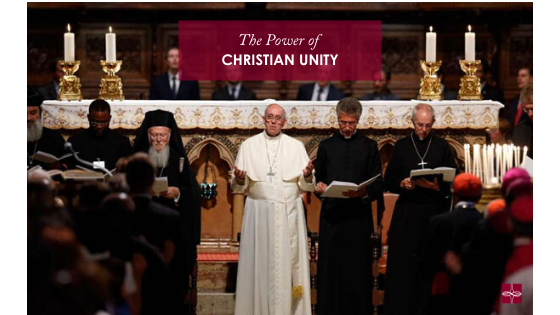
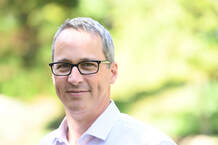
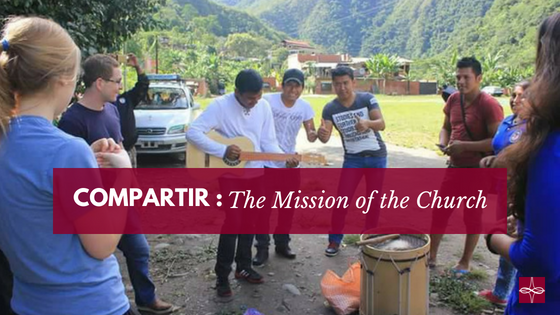
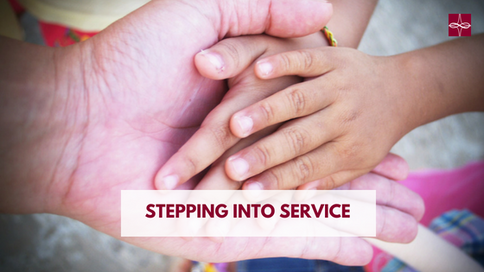
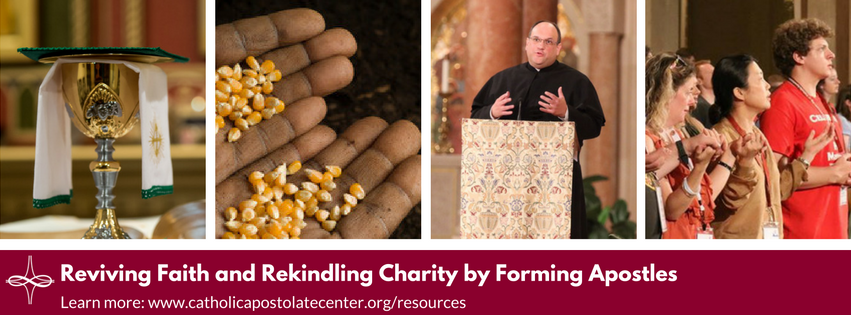
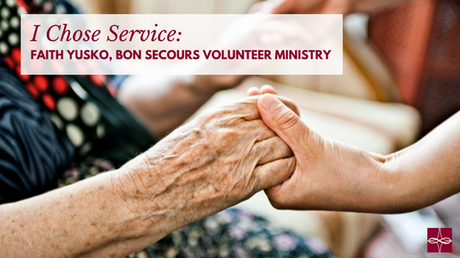
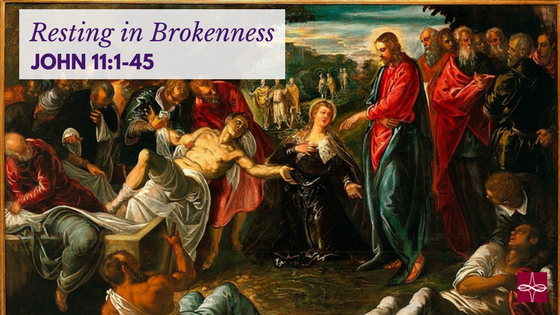

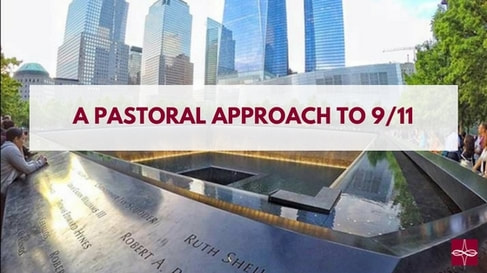
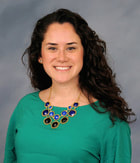
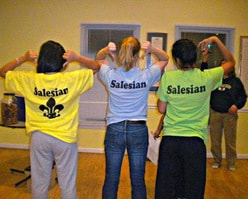
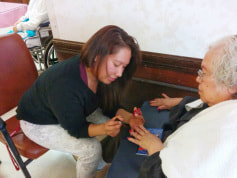

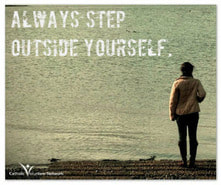
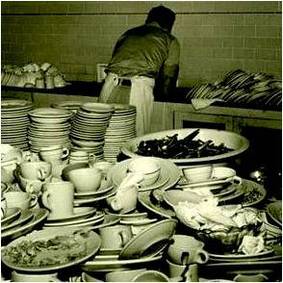
 RSS Feed
RSS Feed